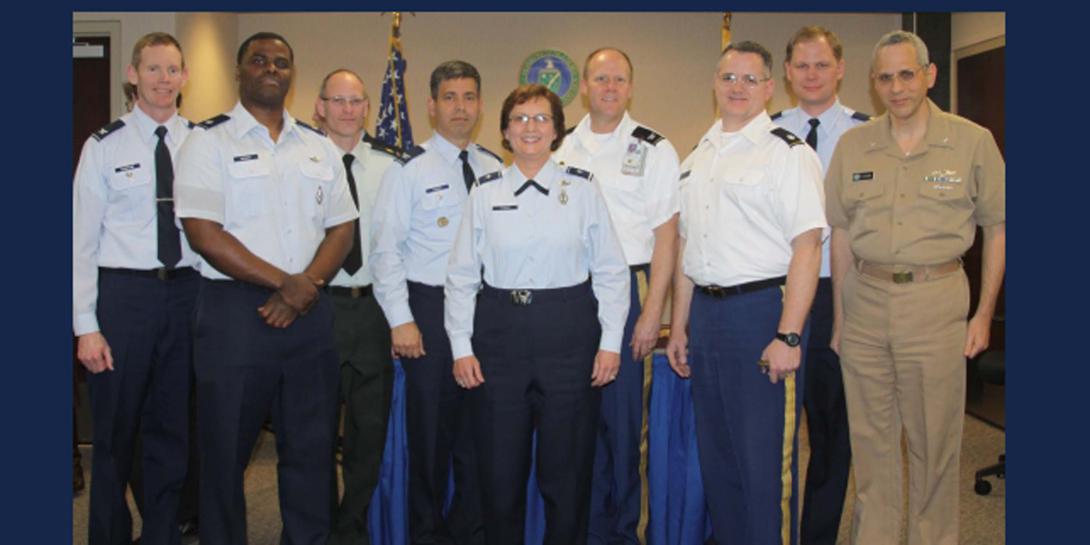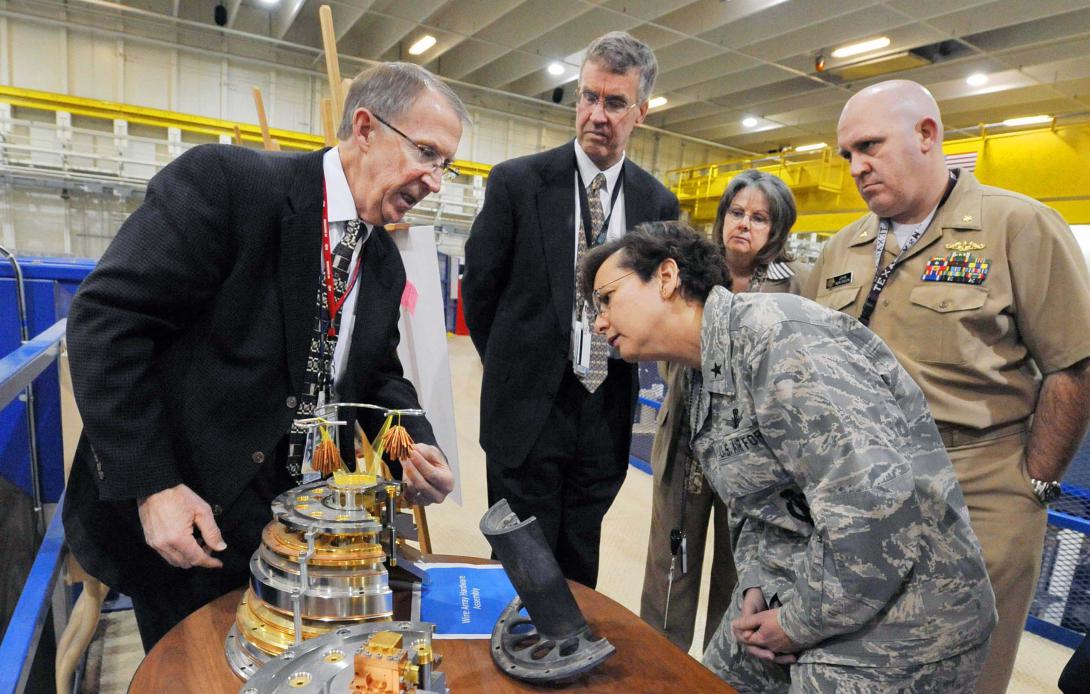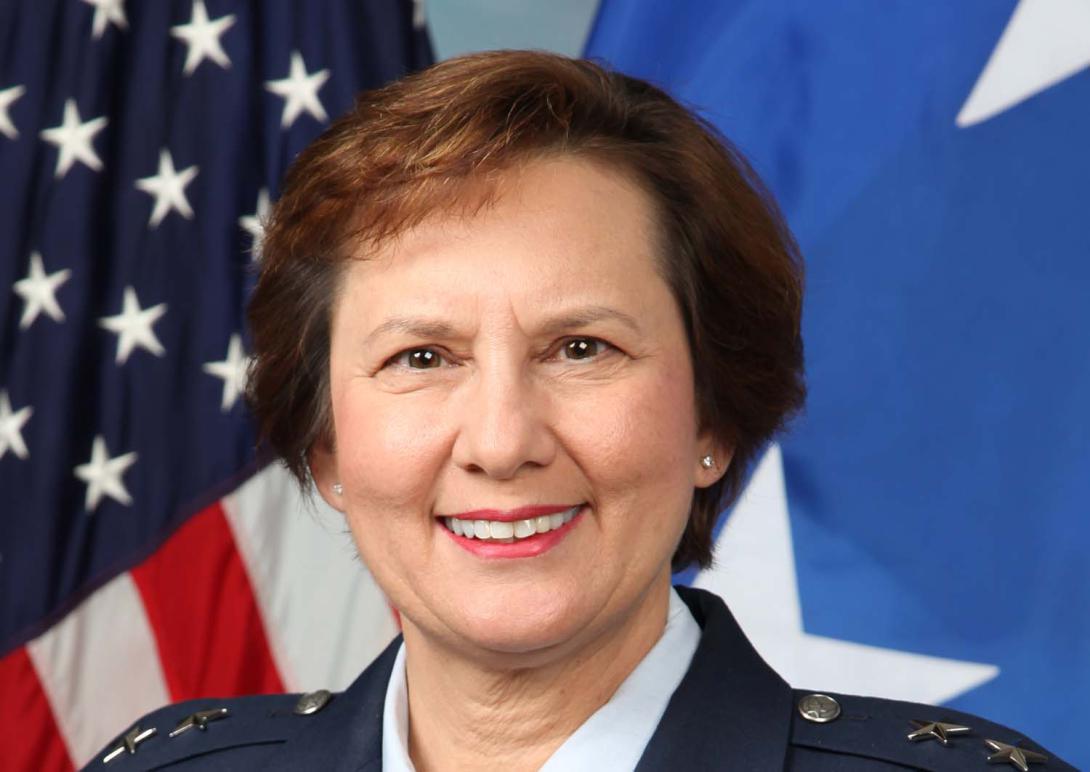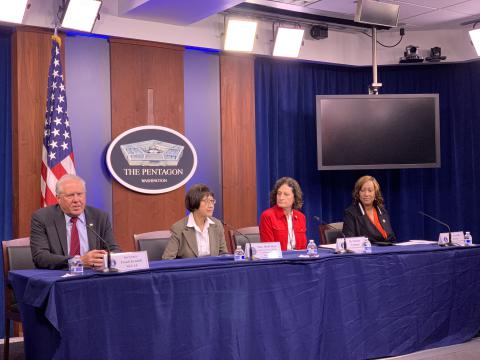Getting STEM Students Hooked Early in Education
Maj. Gen. Sandra Finan, USAF, was among the first women to crack the once male-dominated world of nuclear missiles, blazing a trail during those first integration years when, at the time, men could opt out of pulling “an alert” with a woman—the assignment when Air Force two-personnel crews pulled 24-hour underground duty.
Keen focus in early years of students' education will help increase the popularity of participation in the disciplines of science, technology, engineering and mathematics, better known as STEM—particularly among girls. Leaders must color those disciplines as creative, relevant and fun, for it is diversifying the work force that will help agencies and companies better reflect those they serve. SIGNAL Media and AFCEA International’s Women in AFCEA address the issue in a multi-month project to highlight women in STEM.
Maj. Gen. Sandra Finan, USAF, was among the first women to crack the once male-dominated world of nuclear missiles, blazing a trail during those first integration years when, at the time, men could opt out of pulling “an alert” with a woman—the assignment when Air Force two-personnel crews pulled 24-hour underground duty.
Women didn’t opt out.
They weren’t even asked.
“But it didn't take very long for the Air Force to change that to say, ‘This is the way we now operate, and you don't get to opt out. We’re an integrated force,’” Gen. Finan recalls of the early years.
That was roughly four decades after the Women's Armed Services Integration Act of 1948 granted women permanent status in the regular and reserve forces of the Army, Navy and Marine Corps. That pioneer woman today serves as the deputy chief information officer (CIO) for command, control, communications and computers (C4) and information infrastructure capabilities.
Her emergence in the technology field is rather unorthodox.
Gen. Finan, 58, began her working years as a primary education music teacher in California. “When I was a youngster in school, all I wanted to do was be a music teacher,” she shares. But after three years, she felt unsatisfied and wondered if there was something else—something more.
“I was really interested in space and technology. So I had decided to take my teacher’s retirement money out and go back to tech school to learn how to program computers. This was early in the 1980s, and these strange little boxes called computers seemed like they might be something that affected the future.”
During her second round at getting an education, she received a letter from the Air National Guard looking for people to perform in the band. She was a trumpet player and excelled at most of the brass instruments, but they needed a clarinet player. Though she declined the band offer, military service intrigued her. “I asked, ‘What is your hardest electronics field?’ and at that point in time, they told me it was the crypto field—crypto maintainer—so I signed up right there on the spot.”
Vying for the hardest field has become Gen. Finan’s mantra as she went on to command a space operations squadron, a missile wing and a center. She has deployed to the Combined Air Operations Center in Southwest Asia as the director of space forces in support of operations in Iraq and Afghanistan.
It is through hard work that the nation will build the floundering disciplines in the science, technology, engineering and mathematics (STEM) fields, for both men and women, she says. “Our challenge is to inspire Americans to get into these hard technical fields, to invest the time and effort—and know that it's going to be hard,” Gen. Finan says. “But in the end, you're going to make the world a better place.
The lack of focus on STEM during the early school years is "part of the problem we have in recruiting into the STEM fields,” Gen. Finan continues. “I have a hard time finding really technical U.S. citizens. When the national labs are looking for the people with Ph.D.s in these really hard subjects of nuclear physics or nuclear engineering, in chemical engineering, it's actually hard to find U.S. citizens for those positions.”
Diversifying the work force helps agencies and companies better reflect those they serve, she says, stressing the importance of education and working to increase the popularity of STEM education—particularly among girls—as disciplines that are creative, relevant and fun. “We need to start attracting people at a very young age, which means we have to invest in mentoring and engagement programs where we get out as early as possible in elementary schools and get youngsters interested in the technology.
“More and more, we're not exposing our young children to all of that technology,” Gen. Finan shares. “When it comes time for them to make a choice, it never occurs to them to choose a hard technical field.”
If that’s not enough, leaders can always appeal to other desires.
“Economically, by going into a technical career field, the skill set that you develop is going to be in demand,” she sets out. “You're going to be able to demand a much higher salary. The second piece of that is your chance to change the world. What if you're the one who suddenly sees a connection that nobody else has seen and changes some of the theories we have?
“What if you are the one who actually figures out what the cure to cancer is eliminate the common cold?”
Gen. Finan punctuated her career by taking on the assignments that introduced her to new worlds. “I think it was the drive to be on something cutting-edge that would affect more than just myself,” she says. “I wanted to be a part of something that was our future, that was going to drive our future.”
Join AFCEA now, where for $50 a year, you can make a difference in the STEM community, for women, students and for national security. Read about AFCEA’s programs for women in STEM.
Join us for AFCEA's first women's panel. "Why Are Women Leaving STEM?" begins at 1:30 p.m. on August 3 in the Engagement Theater at TechNet Augusta. The conversation continues during a networking reception immediately following the session courtesy of panel sponsors Walker and Associates and Ciena.







Comments